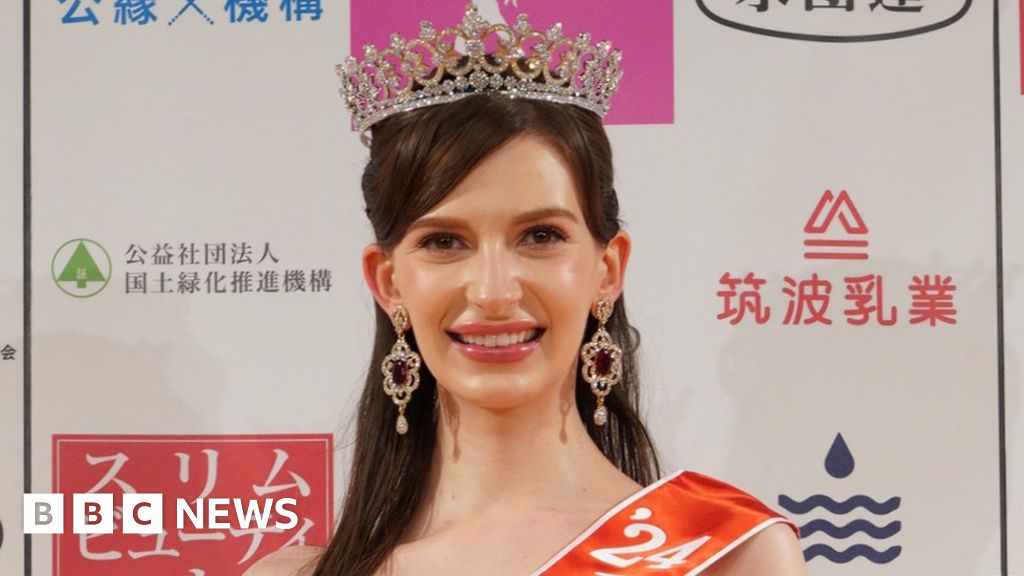“There have been racial barriers, and it has been challenging to be accepted as Japanese.”
That’s what a tearful Carolina Shiino said in impeccable Japanese after she was crowned Miss Japan on Monday.
The 26-year-old model, who was born in Ukraine, moved to Japan at the age of five and was raised in Nagoya.
She is the first naturalised Japanese citizen to win the pageant, but her victory has re-ignited a debate on what it means to be Japanese.
While some recognised her victory as a “sign of the times”, others have said she does not look like what a “Miss Japan” should.



The issue isn’t really where she was born - even if she had been born in Japan, she still wouldn’t be ethnically Japanese. The general idea in the USA seems to be that living in America is what makes someone an American, and this is a way of defining national identity that works well in an era of large-scale immigration. However, it’s not how people generally define their identity. For example, I was born in Ukraine and my ancestors all lived in Ukraine for centuries, but I don’t think of myself as Ukrainian and they didn’t think of themselves as Ukrainian; they identified themselves and were identified by their neighbors as members of a different ethnic group.
I’m not sure where I’m going with that - I empathize with how this woman must be hurt by the criticism her victory is receiving because I came to the USA when I was about as old as she was when she came to Japan and if I were rejected from the community of Americans then I wouldn’t have another community to go to, but I also empathize with people who think that being Japanese is about more than just living in Japan and following Japanese customs because I was raised to believe that about my own identity.
Yeah, unlike a melting pot such as the US, countries like Japan are ethnically homogeneous, and no matter how fluent you are in the language or how long you’ve lived there, you’ll always be a gaijin (foreigner), especially if you look way different (i.e. western). Fortunately, I think as the newer generation slowly takes over, large-scale immigration nowadays is getting more accepted as the world becomes more interconnected.
I think this is kinda the point, that the way ethnicities define themselves are typically based on a misunderstanding of genetics and a bygone definition of race.
I for example am half Korean and half Czech, according to how both those ethnicities self identify I don’t really qualify for either. To my Korean family I’m a tall white guy who looks kinda Korean, To my Czech family I’m just a very big Korean dude.
I personally think that ethnicity and culture should be shared, and that gate keeping culture based on antiquated ideologies like race just perpetuates our worse tribal instincts.
Of course that could be some implicit biases coming out to play. If I believed that ethnic purity was a beneficial quality, I’d be in trouble.
Culture is place-based. It’s about how the geography and food and local population and local religious practices shape you and it is constantly evolving because all of those things change over time. It is not genetic. As japan welcomes more immigrants those immigrants will indeed shift the culture in certain ways because there is a new group of people. Pageants are about cultural celebration, and Japan is celebrating their culture with this beautiful woman who calls it home.